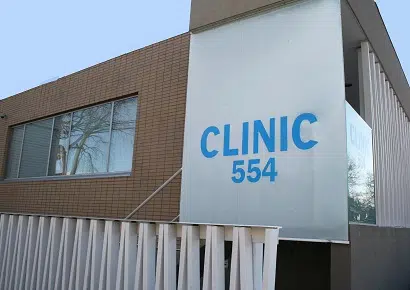Funding from the federal government will help to research abortion services and other support women, youth, 2SLGBTQIA+ persons, racialized Canadians and Indigenous peoples.
$366, 000 is being provided to the University of new Brunswick and Clinic 554 to compile the data.
Dr. Jula Hughes, Adjunct Profession of law at UNB, and Dr. Tobin Haley from Ryerson University, will be leading the research project .
Dr. Hughes says “Getting a clearer picture of the abortion services needs in the Province of New Brunswick will allow governments, health authorities and health care providers to make better, more evidence-based decisions that are responsive to the constitutional and legislative mandates for accessible and equitable health care.”
Federal Health Minister Patty Hajdu says today’s announcement will help amplify the voices of those who are excluded from service, “When a government says there’s no evidence that there’s a need, but they aren’t really intentionally collecting the evidence of need, it allows everyone to turn their heads. So today’s announcement is about bringing those voices to light. Generating that data, in a way that will amplify the voices of people who are excluded from service in a way that will make it impossible for other New Brunswickers and voters to ignore those stories.”
Medical professionals and New Brunswick patients will be asked for their perspectives.
The project is expected to help identify the barriers and restrictions to access to surgical abortions in the province between 2015 and 2020.
Clinic 554 Medical Director Dr. Adrian Edgar says, “Despite lack of provincial funding, Clinic 554 continues, for now, to be a safe, non-judgmental space for New Brunswickers to access vital sexual and reproductive care. We pride ourselves on practicing evidence-based medicine, but we need local data in order to truly do so. We applaud Health Canada’s Health Care Policy and Strategies Program for supporting this accomplished team of researchers in their work to add to our understanding of NB’s unique abortion landscape. It is research like this that helps healthcare teams like ours have the facts we need to do our best for our patients.”
The Government of Canada is also inviting organizations improving access to sexual and reproductive health care to apply for funding.
Hajdu adds, “Our government supports organizations across the country who help improve access to health and reproductive services, and it so important that we address the barriers that many people still face in accessing these services, including abortion. That is why we are announcing funding to help more organizations continue to help Canadians with resources and services about sexual health, and research funding in New Brunswick to make sure women can have access to abortion services.”
An initial targeted call for proposals to invite select organizations to submit applications for the $45 million in Budget 2021 funding was launched on July 29 of this year.
A subsequent call will follow later in 2021 to ensure the goals of the initiative are being adequately addressed and the money being invested is targeting the sexual and reproductive health needs of vulnerable populations.
Fredericton MP Jenica Atwin says, “I am pleased that the Government of Canada will be supporting this important research being conducted by the University of New Brunswick. The results of this work are going to provide health care workers and policy makers with invaluable information about surgical abortions in New Brunswick, including the challenges faced by those wishing to access abortion care.”
Dr. Haley says, “Our planned timeline is about 18 months, give or take, but as everyone knows, research timelines can shift. The purpose of the research is to ensure we have not only a systematic analysis of barriers to abortion in New Brunswick, that’s the difference between the stories that are told and the reporting that is done. It will include a rigorous methodology in order to make sure the province fully understands and so everyone fully understands the barriers. In terms of outputs, this will produce public facing outputs in English and French. We are going to create a website so that this information is publicly available. This is a community engage research project.”




